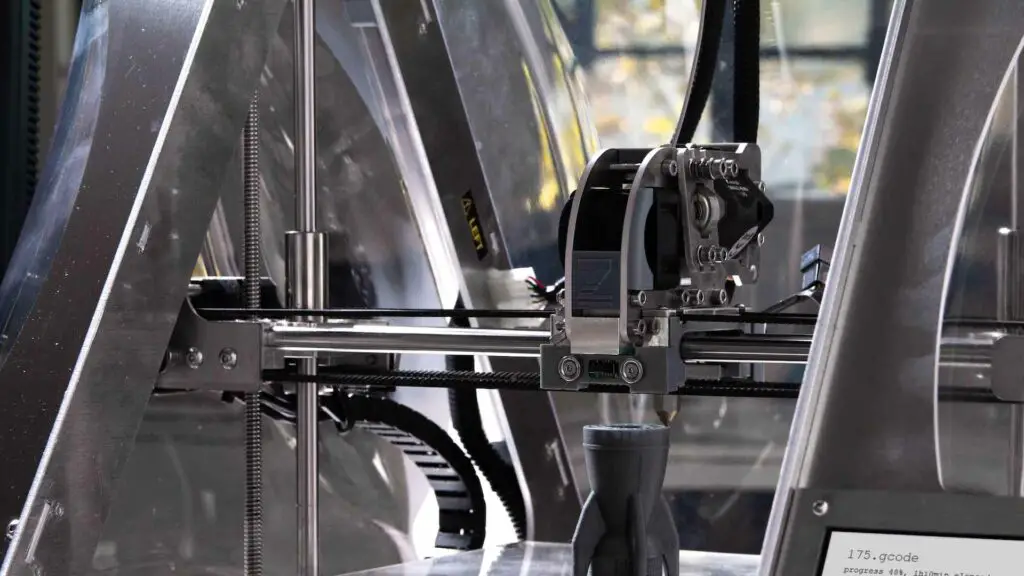Amazon is slowly but deliberately paving the way for total retail automation.
But what does retail automation truly mean? In the most basic terms, retail automation means that a store can operate without the need for human employees. Humanless retail may seem like a scary proposition at first, but there are many benefits to consider. For one, retail automation would mean increased efficiency and accuracy in terms of stocking shelves and fulfilling orders.
Pros and cons of retail automation
Retail and manufacturing companies around the globe are already automating their inventory and order management via smart software.
Larger companies generally use automation solutions from enterprise software giants – think of SAP or Oracle. Small- and medium-sized businesses can opt for more cost-effective platforms with a long list of automation integrations, like Katana manufacturing software. Those software solutions lead to significant cost savings and a more effective production process.
But companies are always hungry for more – automated inventory management is just the initial step toward total automation, for retailers and manufacturers alike. That’s why giants like Amazon are constantly investing in robots, autonomous machines, and even drones.
Of course, there are potential downsides to retail automation. One worry is that it could lead to job losses for cashiers, stockers, and other retail workers. Job losses, in turn, lead to economic hardship for the affected workers and their families.
Another worry is that retail automation could make it easier for large retailers to monopolize the market, putting small businesses at a disadvantage. There are also some people who argue that automated stores might not be able to provide the same level of empathetic customer service as human-run establishments.
However, it’s important to remember that automation has always led to new job opportunities, even as it has replaced existing roles. For example, the rise of ATMs led to the creation of new jobs in banking and customer service. As retail automation becomes more widespread, we can expect to see new types of jobs emerge in the retail sector.
Evolution of robots
Regardless of the potential drawbacks, it’s clear that Amazon is leading the charge when it comes to retail automation. Naturally, they’re in the front of the automation wolf pack since they are one of the most valuable companies in the whole world. Therefore they have the resources to experiment with automation and innovative technology.
Proteus is the name of Amazon’s latest robot, and Amazon claims it can safely navigate around human employees, unlike some of its previous robots, which were kept separate in a caged area. Amazon claims the Proteus robots have advanced safety, perception, and navigation technology, which will be proven soon.
Amazon facilities are also equipped with Cardinal, a robotic arm capable of lifting and moving packages weighing up to 50 pounds that Amazon hopes to deploy in all warehouses soon. According to the company, its computer vision systems allow it to pick out and lift individual packages even if they are in a pile.
Amazon Robotics Identification (AR ID) is another notable robotic innovation from Amazon. AR ID is an automatic scanning solution with innovative computer vision and machine learning technology, enabling easier scanning of packages in Amazon’s warehouses.
Amazon started developing all of their retail robots back in the early 2010s when they acquired a robotics development company named Kiva. The development of Kiva’s robots cost Amazon at least several hundred million dollars, if not more. Even with that high of an investment, it is paying off for the company. These robots have increased Amazon’s efficiency so much that they’ve saved millions per year in operating costs.
Of course, Amazon isn’t the only one using smart warehouse robots. Walmart, Nike, and Coca-Cola have all implemented robots in their warehouses as well. However, Amazon has put the most into research and development for retail automation and continues to be the one to watch in this space.
Autonomous driving technology for retail logistics
Not only is Amazon continuing to experiment with and deploy robots in their warehouses, but they’re also working on developing autonomous driving technology for their vehicles. Self-driving cars would automate the package delivery process, saving Amazon money in the long run.
Zoox, founded in 2014 and acquired by Amazon in 2020 for a whopping $1.2 billion, has spent nearly a decade developing an autonomous vehicle from the ground up. Their autonomous technology is not only meant for city streets but also for highways and other off-road environments.
While many other autonomous driving companies like Tesla focus on passenger cars, Zoox’s vehicles are designed to provide an autonomous vehicle to transport passengers. This makes Zoox a perfect fit for Amazon’s needs. With Amazon’s backing, Zoox will likely remain a major player in retail automation.
Amazon has also invested heavily in Lion Electric (an electric truck and school bus manufacturer), Rivian (an electric vehicle company), and Aurora, a cloud-based relational database for their autonomous driving data.
Other start-ups and companies investing in retail automation
Even though Amazon has been working on retail automation for a few years now, they’re not the only company doing so. Many start-ups are trying to develop similar technology to sell it to retailers. Some of these companies are:
- Standard Cognition – they are developing a fully automated cashier-less store, similar to Amazon Go.
- Grabango – developing cashier-less technology, Grabango’s system uses a combination of computer vision and weight sensors to track what items are being taken off of shelves.
- Icertis – a software company that has developed a platform to help manage contracts for autonomous vehicles.
- Nauto – they are developing an AI-powered driver safety system that uses cameras and sensors to monitor driver behavior.
Time will tell which of the aforementioned startups will prevail and see their innovation adopted by retail companies alongside Amazon’s inventions. So far, automation has been a major positive force in many industries, and there’s no reason to think that retail will be any different.
